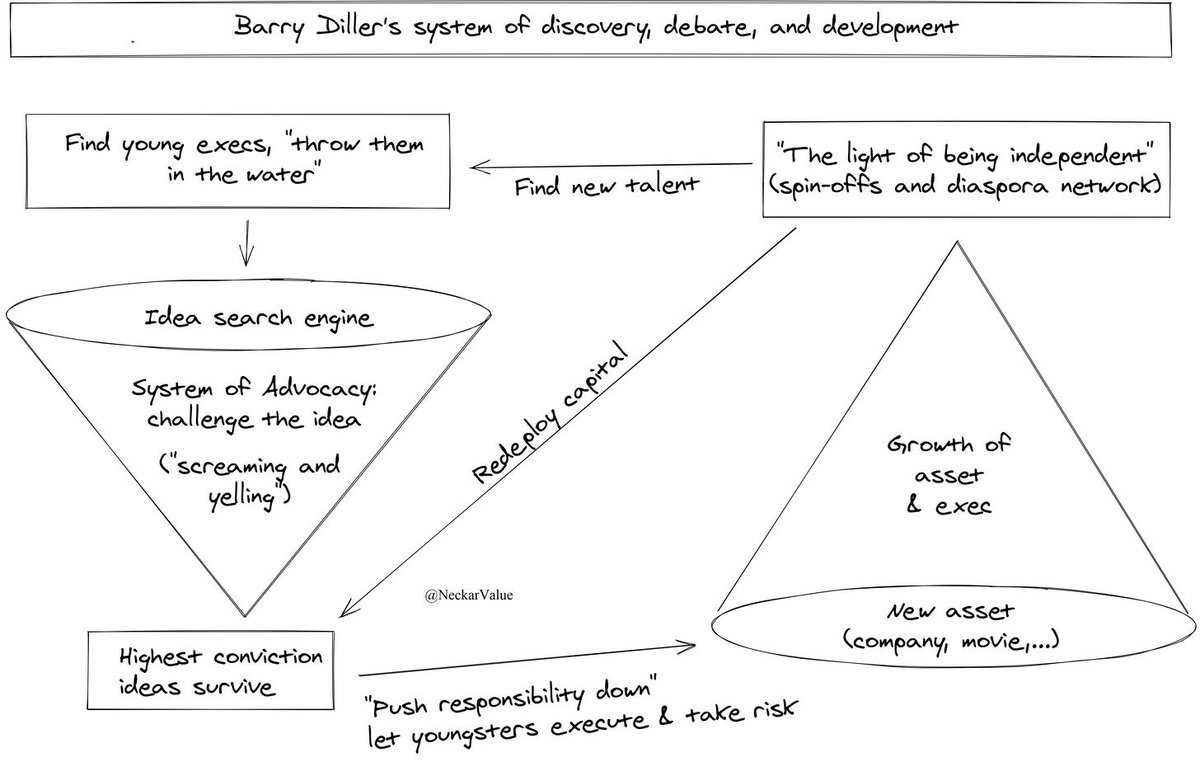Latest Commonplace piece is about the difference between exec development and training individual contributors.
commoncog.com/blog/exec-deve…
commoncog.com/blog/exec-deve…
This is one of those essays where I'm not 100% sure of the conclusions — I'll have to put it to practice before I can say for certain.
But there *does* seem to be a tension between 'handholding' ICs, and 'throwing execs into the deep end', and it seems productive to investigate.
But there *does* seem to be a tension between 'handholding' ICs, and 'throwing execs into the deep end', and it seems productive to investigate.
One thing that I'm actively chewing over: perhaps 'throwing people into the deep end' is simply a pedagogical thing, but for high potential hires.
Oh, before I forget: hat tip to @NeckarValue for writing the best deep dive on Barry Diller I've read.
Part one is here: neckar.substack.com/p/barry-diller…
Part two, members only, is here: neckar.substack.com/p/barry-diller…
Part one is here: neckar.substack.com/p/barry-diller…
Part two, members only, is here: neckar.substack.com/p/barry-diller…
The screenshot that matters in that second piece is this one:
(And this isn't even 10% of the content that @NeckarValue dug up on Diller. Seriously, subscribe to him. His work is that good).
(And this isn't even 10% of the content that @NeckarValue dug up on Diller. Seriously, subscribe to him. His work is that good).

• • •
Missing some Tweet in this thread? You can try to
force a refresh







